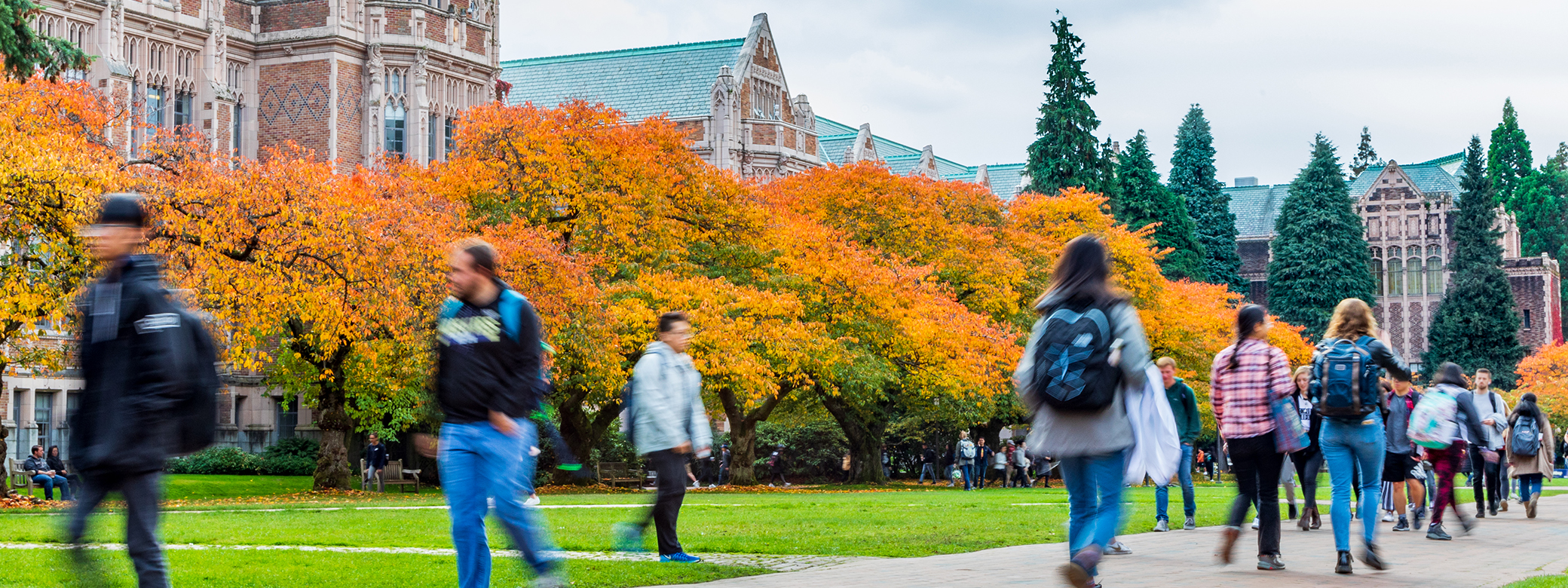-
Exit polls, gender gaps, and religion: understanding Latino voting patterns in the 2024 election
In the aftermath of the 2024 election, Democrats are confronting a possible existential threat: The erosion of support among important demographic groups, particularly Latinos. Sophia Jordán Wallace, professor of political science at the UW, is interviewed.11/20/2024 | KUOW -
Opinion: Falling in love with reading will change your life
"As a professor, I agree with my colleagues who have noticed the declining literacy of American students at elite universities. However, I am not sure if the schools are entirely to blame," writes Ione Fine, professor of psychology at the UW.11/19/2024 | The Atlantic -
10 Suggestions for First Generation Students
Exciting. Confusing. Inspiring. Intimidating. Being a first-generation college student can bring many challenges and emotions. If you are a first-gen student, know that you are in good company. Here, ten UW Arts & Sciences students/alumni who've been in your shoes offer their thoughts on surviving — and thriving — as a first-generation student at the UW.
11/19/2024 | College of Arts & Sciences -
People over party: Reelected US Rep. Perez bucks election trend with focus on working-class issues
Democrats faced heavy losses nationwide on Election Day, with many districts turning away from the party as Republican Donald Trump won another term as president. Experts say Democratic leaders should take pointers from U.S. Rep. Marie Gluesenkamp Perez. Victor Menaldo, professor of political science at the UW, is quoted.11/18/2024 | The Columbian -
Podcast: Revisiting Microsoft's startup years, in search of new insights
The extraordinary pace of Microsoft’s ascent is what stands out in retrospect. The company, which is marking its 50th anniversary next year, was well on its way to dominating its industry by the time it arrived in the Seattle region from Albuquerque in 1979. Seven years later, in March 1986, the company made its debut on the New York Stock Exchange, at a market value of more than $500 million. So what can be learned from a fresh look at Microsoft’s startup years? Margaret O'Mara, professor of history at the UW, is quoted.11/15/2024 | GeekWire -
Researchers at UW improve upon survey-based system for better homeless counts
Assessing the size of the homeless population is full of challenges and has often led to undercounts, but a team of researchers at the University of Washington has developed a system that they say fills in those gaps. Zack Almquist, a UW associate professor of sociology, and Amy Hagopian, professor emeritus of health systems and population health, are interviewed.11/15/2024 | KOMO 4 -
Why Washington was the only state to shift blue in 2024
After a week of vote counting, Washington still appears to be the only state that got slightly bluer in the 2024 presidential election — and political observers have several theories why. Victor Menaldo and Mark Smith, professors of political science at the UW, are quoted.11/13/2024 | Axios Seattle -
If free trade isn't free, what's next for Washington's economy?
The free trade era that has defined the U.S. economy for decades made clear winners and losers. It tanked the Rust Belt, but sent the Pacific Northwest’s global economy to new heights. Washington state has always benefited from its international companies and the free flow of talent across borders. So what does the potential end of the free trade era mean for our economy? Margaret O'Mara, professor of history at the UW, is interviewed.11/13/2024 | KUOW -
Opinion: Washington voters favor pollution cap but not transitioning from gas
"While voters overwhelmingly rejected I-2117 by a 62%-38% margin (that is, voted to continue cap-and-invest), they narrowly supported I-2066 by a 51% - 49% margin (that is, they opposed transitioning from gas)," write the UW's Nives Dolšak, professor of marine and environmental affairs, and Aseem Prakash, professor of political science.11/12/2024 | Forbes -
What exactly happens when the nucleus of an atom splits in two?
Nuclear fission has powered our world and medical advancements for decades, yet some of its secrets have remained elusive. Aurel Bulgac, professor of physics at the UW, is quoted.11/12/2024 | Earth.com
